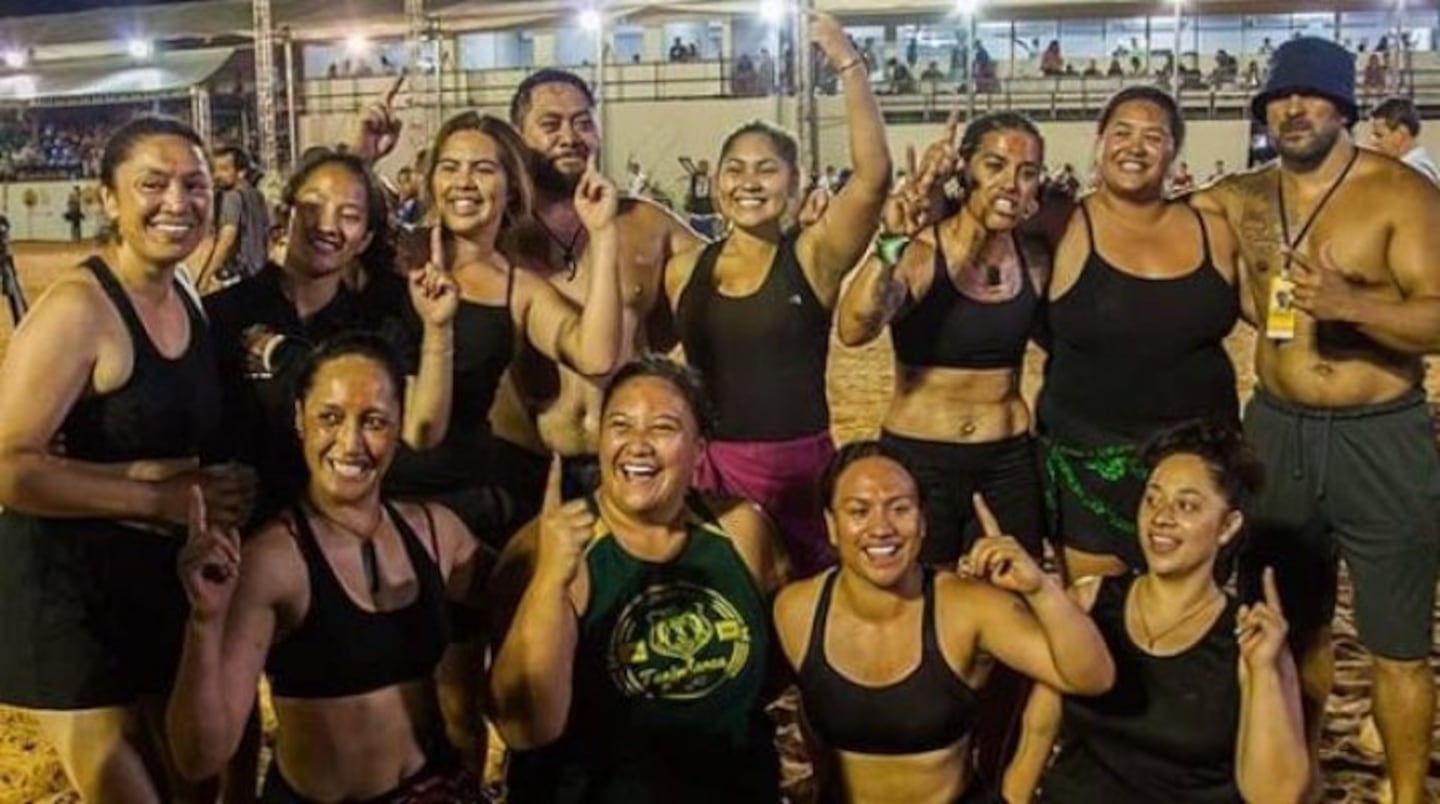The Aotearoa Wāhine rōpū has taken out the tug of war title at the World Indigenous Games in Brazil.
Held in Palmas, Brazil, the team of ten wāhine competed against a total of 32 international teams to take out gold in the grand final against a local Brazilian tribe.
Captain, Davina Thompson (Ngāti Rangitihi, Ngāti Hokopu, Ngāti Hē, Ngāti Makino) says the match wasn't an easy task, therefore, coming out on top was both an emotional and rewarding experience.
She says, "It was very challenging. This is their pride and joy sport they train very hard for Tug of War so we knew we were up for a wero. We had to change our strategy slightly as the rules had changed on finals day, however we all adapted and accomplished what we had set out to do. Our entire Aotearoa rōpū pulled that rope together."
She says once the realisation hit that they had won, there was a great sense of pride and excitement among the team, "Our rōpū all did the haka in the last minute! It gave us that extra ihi, wehi and mana to hold out the other tribe. The feeling of winning was amazing! At the end, the oldest athlete and chief of the main tribe came to congratulate us in our victory. That was a very humbling and special moment."
The overall experience was "life-changing", and as Thompson explains, it was a memorable occasion for all involved.
"The experience was definitely life-changing. For me it was more of a Spiritual connection. A connection with our Indigenous brothers and sisters. I feel in my heart that our entire rōpū represented and did our Māori people proud," she says.
Aotearoa Māori Women receive their gold medals.
The entire Aotearoa contingent who participated in the games is now making the long haul back home after what was a successful campaign and will focus on the next Indigenous Games event in two years time.
"We came from all four directions of Aotearoa. We all look forward to the 2017 World Indigenous Olympics in Canada where our First Nation Brothers and Sisters will host," adds Thompson.
Tug of War team member, Xzavier Brought with her gold medal.
The inaugural World Indigenous Games 2015:
Brazil hosted the inaugural multi-sport event with over 2,000 indigenous athletes from 30 different countries taking part. It was established by the Marcos Terena’s Intertribal Council (ITC) the Brazilian Ministry of Sport, and the Municipality of Palmas.
The many indigenous faces took part in a number of sporting events ranging from a few Western-style competitions such as football and athletics to many indigenous traditional games.
While some games were competitive such as canoeing and archery, there were also a huge number of non-competitive demonstration events in which indigenous peoples chose to showcase their living heritage of games.

